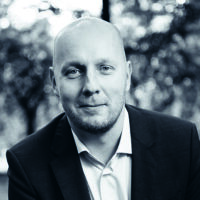Über Geld spricht man nicht, Geld hat man
The traditional German saying in the title, “You do not talk about money, you have money”, applies remarkably poorly to the Finnish universities. Money is very generously talked about, usually relating to a lack of money, the looming threat of a lack of money, or the bureaucratic difficulty of using money.
At the end of the tunnel awaits the pitch-dark path of the pauper unless we do the proverbial something. This is where you insert the magic word of your university, faculty, department, or unit, preferably something involving monetary profit that fixes the deficit.
Under a global lens, the result-oriented funding model is a Finnish speciality. A significant portion of university funding comes from completed degrees, research results, and strategic focus actions.
A new funding model for 2025–2028 is currently under development. Are the indicators about to change once again?
A result, i.e., a completed degree or article, is not a sign of quality or impressiveness in itself. After all, a degree is a piece of paper stamped by the university (or, well, a digital certificate nowadays) that states you have completed the required studies. A quantitative indicator says nothing about the quality of your work.
It feels as if “teaching quality” is a discussion stuck two decades in the past. The last decade’s effectiveness metrics (students completing 55 credits a year, the numbers of lower and higher university degrees agreed upon in performance agreement negotiations) have supplanted any talk about quality education. Implicitly, it is thought education quality is high if the number of graduating students meets the predetermined quota.
The world has also changed in that quality and pedagogy in university teaching are much more central than in the century that ended a considerable time ago. Teaching on pedagogically meaningful grounds is gaining appreciation compared to the past. The world changes slowly, and the academic community surely still has members without any deeper connection to providing the highest level of education. Now, the universities have the opportunity to actively support the pedagogic training of their teaching and research staff.

